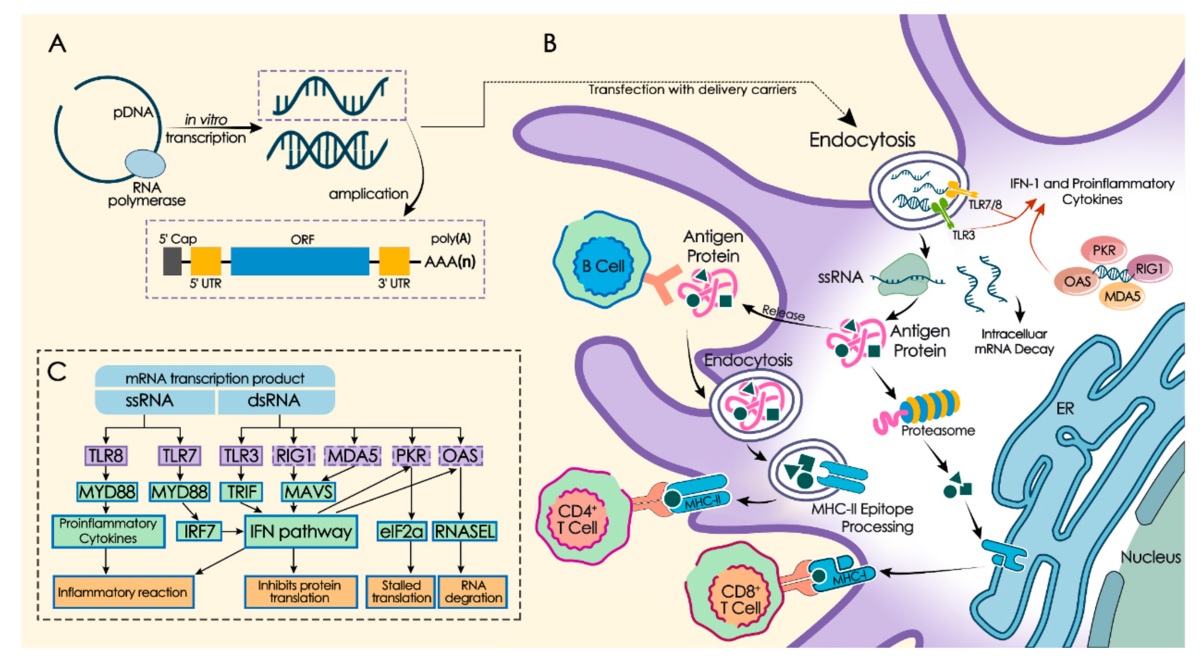ADVERTISEMENT
Install the app
How to install the app on iOS
Follow along with the video below to see how to install our site as a web app on your home screen.
Note: This feature may not be available in some browsers.
You are using an out of date browser. It may not display this or other websites correctly.
You should upgrade or use an alternative browser.
You should upgrade or use an alternative browser.
Best COVID Vaccine?
- Thread starter LexTiger
- Start date
The Mark Martin

Why? No reason, other than I was a Mark Martin fan back in the day.

Why? No reason, other than I was a Mark Martin fan back in the day.
Last edited:
Whichever one you can get the quickest. They are all safe and highly effective.
Probably not a dime's worth of difference between the Pfizer and Moderna ones but I chose Pfizer since that's what my family got.
Having read up on the various ones it just seems that these mRNA ones are the best in class right now.
Having read up on the various ones it just seems that these mRNA ones are the best in class right now.
Pharmacist here… Do you want a professional opinion or the bunker’s opinion?
My man
Was part of their clinical trial in NC. Limited side effects. Great experience.
https://www.sstack.com/durvet-iverm...ys7dq8hpjFY8BHUS34rthigLfLVCgkHEaAr2dEALw_wcBIf you have availability to all three vaccines which would you select?
Whichever one you can get the quickest. They are all safe and highly effective.
This.
Hilarious that we as lay consumers are talking about which vaccine is better.
i am currently sitting waiting my 15 minutes after getting JNJ. My reasoning, 1 shot > 2 shots
i am currently sitting waiting my 15 minutes after getting JNJ. My reasoning, 1 shot > 2 shots
Probably not a dime's worth of difference between the Pfizer and Moderna ones but I chose Pfizer since that's what my family got.
Having read up on the various ones it just seems that these mRNA ones are the best in class right now.
what do the long term studies say about mRNA?
Professional opinion.Pharmacist here… Do you want a professional opinion or the bunker’s opinion?
If you have availability to all three vaccines which would you select?
Pfizer. One week less to wait for second vaccine. Also...
“Each dose of Pfizer's contains 30 micrograms of vaccine. Moderna went with a much larger dose of vaccine, 100 micrograms. It means the company is using a little more than three times as much vaccine per person as Pfizer.”
They are showing the same results so not sure why anybody would want 3x if it doesn’t matter to efficacy.
LOL. That was my wife's reasoning... she got JNJ on Friday.Hilarious that we as lay consumers are talking about which vaccine is better.
i am currently sitting waiting my 15 minutes after getting JNJ. My reasoning, 1 shot > 2 shots
Pretty interested in What brand flu vaccine are y’all planning on getting next year.
still researching which brand of polio booster i should get.
any information is greatly appreciated.
still researching which brand of polio booster i should get.
any information is greatly appreciated.
Do not want! It is not free...$6.49 per tube and it is apple flavored...gonna have to pass...
But it works!Do not want! It is not free...$6.49 per tube and it is apple flavored...gonna have to pass...
Pretty interested in What brand flu vaccine are y’all planning on getting next year.
still researching which brand of polio booster i should get.
any information is greatly appreciated.
They all suck so it doesn’t matter. The op was simply asking IF you had the choice, which one would you get. Nothing wrong with that question. J&J is the hardest one to find btw.
I did Moderna because that’s what the vaccine clinic had. Got a pretty bad case of covid arm with the first shot but haven’t gotten it yet from the second shot (got the shot a week ago).
I would recommend the Oral Polo Vaccine for you...Pretty interested in What brand flu vaccine are y’all planning on getting next year.
still researching which brand of polio booster i should get.
any information is greatly appreciated.
Polio Vaccination: What Everyone Should Know | CDC
Everything you need to know about polio vaccine: who needs it, types of polio vaccines, how well does it work, what are the side effects, how to pay for it
what do the long term studies say about mRNA?
well considering they have been around for 10 years .. I’m guessing none that are currently known
Isn’t the JNJ efficacy more than 40% lower than Moderna & Pfizer?Hilarious that we as lay consumers are talking about which vaccine is better.
i am currently sitting waiting my 15 minutes after getting JNJ. My reasoning, 1 shot > 2 shots
A
anon_xdkqbpnrbtnct
Guest
100% against hospitalization and deathIsn’t the JNJ efficacy more than 40% lower than Moderna & Pfizer?
The best vaccine is the one you're offered. Take it. Help errbody get back to normal.
All 3 affect people differently. Just depends.
All 3 affect people differently. Just depends.
Pfizer has far and away the best PR team and lobbyist. I’m with them.
We have people calling our call centers looking for a Moderna or Pfizer clinic. It’s really bizarre because the decision making is all based upon Facebook rumor and innuendo.
We have people calling our call centers looking for a Moderna or Pfizer clinic. It’s really bizarre because the decision making is all based upon Facebook rumor and innuendo.
why in the world would the bunker want a medical opinion. hush!Pharmacist here… Do you want a professional opinion or the bunker’s opinion?
I just got the J&J saturday as did the wife. Easy, outside the arm getting hit with a bat and the fatigue all day Sunday (not sure if it was the drinking at friends house) but nonetheless no issues.
I consulted my doctor and my cousin who is one of the top pediatric doctors in California and both said exactly the same at my age 39, get whatever you can, they are all highly effective and you should only care about not having to be admitted to the hospital and/or die, get whatever one of the three. I had actually an appointment for Modera and cancelled it for the one shot due to that, didnt want to wait the 2-3 weeks in between.
I consulted my doctor and my cousin who is one of the top pediatric doctors in California and both said exactly the same at my age 39, get whatever you can, they are all highly effective and you should only care about not having to be admitted to the hospital and/or die, get whatever one of the three. I had actually an appointment for Modera and cancelled it for the one shot due to that, didnt want to wait the 2-3 weeks in between.
Last edited:
Tossing 15 million because you couldn't get the caps right doesn't help.They all suck so it doesn’t matter. The op was simply asking IF you had the choice, which one would you get. Nothing wrong with that question. J&J is the hardest one to find btw.
Pfizer. One week less to wait for second vaccine. Also...
“Each dose of Pfizer's contains 30 micrograms of vaccine. Moderna went with a much larger dose of vaccine, 100 micrograms. It means the company is using a little more than three times as much vaccine per person as Pfizer.”
They are showing the same results so not sure why anybody would want 3x if it doesn’t matter to efficacy.
friend took Pfizer...fever went to 106.
I had COVID with absolutely no symptoms. Had the first Pfizer dose with absolutely no symptoms other than a sore right arm. Had the second Pfizer dose with absolutely no symptoms other than a sore left arm. I'm not sure my body cares which one I get but it didn't seem to mind Pfizer.
well considering they have been around for 10 years .. I’m guessing none that are currently known
Have they? Research has been around for a while but never an mRNA vaccine.
"At the onset of the COVID-19 pandemic, no mRNA drug or vaccine had been licensed for use in humans."

RNA vaccine - Wikipedia
 en.wikipedia.org
en.wikipedia.org
n 1989, researchers at the Salk Institute, the University of California, San Diego, and Vical published work demonstrating that mRNA, using a liposomal nanoparticle for drug delivery, could transfect mRNA into a variety of eukaryotic cells.[15] In 1990, the University of Wisconsin reported positive results where "naked" (or unprotected) mRNA was injected into the muscle of mice.[3] These studies were the first evidence that in vitro transcribed (IVT) mRNA could deliver the genetic information to produce proteins within living cell tissue.[3]
The use of RNA vaccines goes back to the 1990s. The in vitro demonstration of mRNA in animals was first reported in 1990,[16] and the use of mRNA for immunization was proposed shortly thereafter.[17][18] In 1993, Martinon demonstrated that liposome-encapsulated RNA could stimulate T-cells in vivo, and in 1994, Zhou & Berglund published the first evidence that RNA could be used as a vaccine to elicit both humoral and cellular immune response against a pathogen.[3][19][20]
In 2000, German biologist Ingmar Hoerr published an article on the efficiency of RNA‐based vaccines, which he studied as part of his doctoral degree.[21][22] After completing his PhD, he founded CureVac together with his PhD supervisor Günther Jung, Steve Pascolo, Florian von der Muelbe, and Hans-Georg Rammensee.
Hungarian biochemist Katalin Karikó attempted to solve some of the main technical barriers to introducing mRNA into cells in the 1990s. Karikó partnered with American immunologist Drew Weissman, and by 2005 they published a joint paper that solved one of the key technical barriers by using modified nucleosides to get mRNA inside cells without setting off the body's defense system.[3][23] Harvard stem cell biologist Derrick Rossi (then at Stanford) read Karikó and Weissman's paper and recognized that their work was "groundbreaking",[23] and in 2010 founded the mRNA-focused biotech Moderna along with Robert Langer, who also saw its potential in vaccine development.[23][3] Like Moderna, BioNTech also licensed Karikó and Weissman's work.[23]
Up until 2020, these mRNA biotech companies had poor results testing mRNA drugs for cardiovascular, metabolic and renal diseases; selected targets for cancer; and rare diseases like Crigler–Najjar syndrome, with most finding that the side-effects of the mRNA delivery methods were too serious.[24][25] mRNA vaccines for human use have been developed and tested for the diseases rabies, Zika, cytomegalovirus, and influenza, although these mRNA vaccines have not been licensed.[26] Many large pharmaceutical companies abandoned the technology,[24] while some biotechs re-focused on the less profitable area of vaccines, where the doses would be at lower levels and side-effects reduced.[24][27]
At the onset of the COVID-19 pandemic, no mRNA drug or vaccine had been licensed for use in humans.
The use of RNA vaccines goes back to the 1990s. The in vitro demonstration of mRNA in animals was first reported in 1990,[16] and the use of mRNA for immunization was proposed shortly thereafter.[17][18] In 1993, Martinon demonstrated that liposome-encapsulated RNA could stimulate T-cells in vivo, and in 1994, Zhou & Berglund published the first evidence that RNA could be used as a vaccine to elicit both humoral and cellular immune response against a pathogen.[3][19][20]
In 2000, German biologist Ingmar Hoerr published an article on the efficiency of RNA‐based vaccines, which he studied as part of his doctoral degree.[21][22] After completing his PhD, he founded CureVac together with his PhD supervisor Günther Jung, Steve Pascolo, Florian von der Muelbe, and Hans-Georg Rammensee.
Hungarian biochemist Katalin Karikó attempted to solve some of the main technical barriers to introducing mRNA into cells in the 1990s. Karikó partnered with American immunologist Drew Weissman, and by 2005 they published a joint paper that solved one of the key technical barriers by using modified nucleosides to get mRNA inside cells without setting off the body's defense system.[3][23] Harvard stem cell biologist Derrick Rossi (then at Stanford) read Karikó and Weissman's paper and recognized that their work was "groundbreaking",[23] and in 2010 founded the mRNA-focused biotech Moderna along with Robert Langer, who also saw its potential in vaccine development.[23][3] Like Moderna, BioNTech also licensed Karikó and Weissman's work.[23]
Up until 2020, these mRNA biotech companies had poor results testing mRNA drugs for cardiovascular, metabolic and renal diseases; selected targets for cancer; and rare diseases like Crigler–Najjar syndrome, with most finding that the side-effects of the mRNA delivery methods were too serious.[24][25] mRNA vaccines for human use have been developed and tested for the diseases rabies, Zika, cytomegalovirus, and influenza, although these mRNA vaccines have not been licensed.[26] Many large pharmaceutical companies abandoned the technology,[24] while some biotechs re-focused on the less profitable area of vaccines, where the doses would be at lower levels and side-effects reduced.[24][27]
At the onset of the COVID-19 pandemic, no mRNA drug or vaccine had been licensed for use in humans.
friend took Pfizer...fever went to 106.
Sucks for him.
Have they? Research has been around for a while but never an mRNA vaccine.
"At the onset of the COVID-19 pandemic, no mRNA drug or vaccine had been licensed for use in humans."

RNA vaccine - Wikipedia
en.wikipedia.org
n 1989, researchers at the Salk Institute, the University of California, San Diego, and Vical published work demonstrating that mRNA, using a liposomal nanoparticle for drug delivery, could transfect mRNA into a variety of eukaryotic cells.[15] In 1990, the University of Wisconsin reported positive results where "naked" (or unprotected) mRNA was injected into the muscle of mice.[3] These studies were the first evidence that in vitro transcribed (IVT) mRNA could deliver the genetic information to produce proteins within living cell tissue.[3]
The use of RNA vaccines goes back to the 1990s. The in vitro demonstration of mRNA in animals was first reported in 1990,[16] and the use of mRNA for immunization was proposed shortly thereafter.[17][18] In 1993, Martinon demonstrated that liposome-encapsulated RNA could stimulate T-cells in vivo, and in 1994, Zhou & Berglund published the first evidence that RNA could be used as a vaccine to elicit both humoral and cellular immune response against a pathogen.[3][19][20]
In 2000, German biologist Ingmar Hoerr published an article on the efficiency of RNA‐based vaccines, which he studied as part of his doctoral degree.[21][22] After completing his PhD, he founded CureVac together with his PhD supervisor Günther Jung, Steve Pascolo, Florian von der Muelbe, and Hans-Georg Rammensee.
Hungarian biochemist Katalin Karikó attempted to solve some of the main technical barriers to introducing mRNA into cells in the 1990s. Karikó partnered with American immunologist Drew Weissman, and by 2005 they published a joint paper that solved one of the key technical barriers by using modified nucleosides to get mRNA inside cells without setting off the body's defense system.[3][23] Harvard stem cell biologist Derrick Rossi (then at Stanford) read Karikó and Weissman's paper and recognized that their work was "groundbreaking",[23] and in 2010 founded the mRNA-focused biotech Moderna along with Robert Langer, who also saw its potential in vaccine development.[23][3] Like Moderna, BioNTech also licensed Karikó and Weissman's work.[23]
Up until 2020, these mRNA biotech companies had poor results testing mRNA drugs for cardiovascular, metabolic and renal diseases; selected targets for cancer; and rare diseases like Crigler–Najjar syndrome, with most finding that the side-effects of the mRNA delivery methods were too serious.[24][25] mRNA vaccines for human use have been developed and tested for the diseases rabies, Zika, cytomegalovirus, and influenza, although these mRNA vaccines have not been licensed.[26] Many large pharmaceutical companies abandoned the technology,[24] while some biotechs re-focused on the less profitable area of vaccines, where the doses would be at lower levels and side-effects reduced.[24][27]
At the onset of the COVID-19 pandemic, no mRNA drug or vaccine had been licensed for use in humans.
Correct. This is the first time used in humans.
Commercially. Moderna has had numerous clinical trials for other indications. This doesn’t make the Covid vaccine any safer, but just making that point that the field of mRNA vaccines has been explored in humans for about 15 years.Sucks for him.
Correct. This is the first time used in humans.
Weight loss, copious amounts of Zinc, vitamins D-3 & C. There’s your vaccine.
Sucks for him.
Correct. This is the first time used in humans.
thats the other reason I went with JnJ. there are things we can't know about the mRNA platforms.
Any information on where the microchips are made that are included in each?If you have availability to all three vaccines which would you select?
Sucks for him.
Correct. This is the first time used in humans.
the covid version..
The J&J platform has only been approved in Europe for Ebola. Not a huge body of knowledge there. The mRNA approach is much more palatable to me, but to each there ownthats the other reason I went with JnJ. there are things we can't know about the mRNA platforms.
Pharmacist here… Do you want a professional opinion or the bunker’s opinion?

Similar threads
- Replies
- 52
- Views
- 475
- Replies
- 0
- Views
- 37
- Replies
- 37
- Views
- 623
ADVERTISEMENT
ADVERTISEMENT

